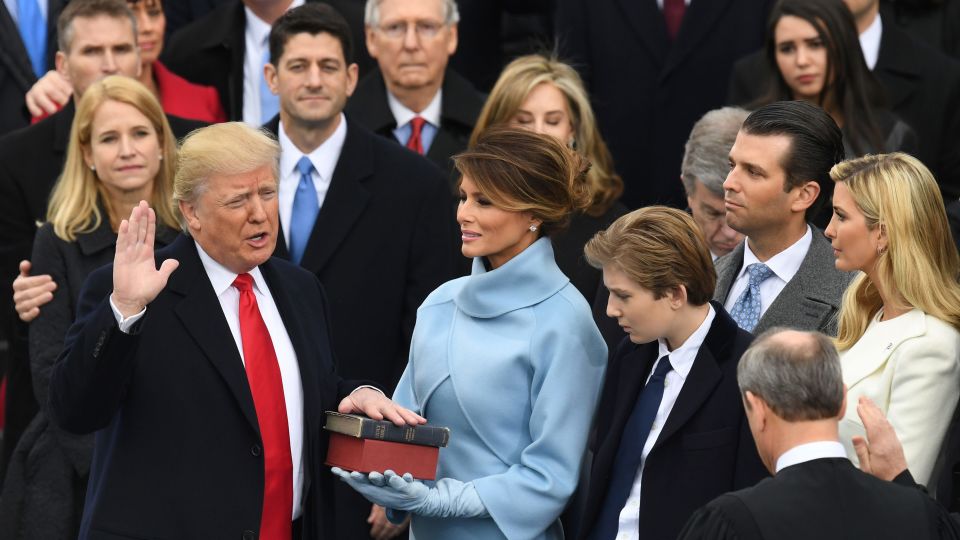Former President Donald Trump is promoting a patriotic version of the Christian Bible, themed around Lee Greenwood’s song “God Bless the USA”. Released in 2021, the Bible features the American flag and patriotic symbols on its cover, along with historical American documents inside. This endorsement by Trump has sparked controversy within religious circles, with some calling it sacrilegious. Critics are concerned that Trump is using faith for financial gain and aligning himself with Christian nationalism, which historically has ties to prejudice and white supremacy.
The blending of patriotism and faith in the “God Bless the USA” Bible has raised questions about Trump’s motivations, especially as he faces several expensive legal battles. Some believe that his endorsement violates religious principles, including the Ten Commandments. Historian Jemar Tisby warns of the dangers of Christian nationalism, arguing that the Bible should not be used to advance political agendas or erase the separation of church and state. Critics like Guthrie Graves-Fitzsimmons view Trump’s promotion of a specific Christian ideology as a form of fear-mongering rooted in racism and prejudice.
The initial release of the Bible in 2021 drew controversy, as publisher HarperCollins Christian Publishing declined to produce it due to concerns over its concept. Critics, including some of the authors published by the imprint, expressed disapproval of the patriotic theme incorporated into sacred scripture. The combination of the Bible and a patriotic song like “God Bless the USA” resonates with some people, while others view it as contradictory to the compassionate values of Christianity. The diverse reactions to the release highlight the various interpretations of American Christianity within different denominations and communities.
In addition to theological concerns, Trump’s promotion of the “God Bless the USA” Bible coincides with his ongoing legal battles which could lead to substantial financial liabilities. The website selling the Bible clarifies that proceeds will not support Trump’s presidential campaign, but it does not specify whether any profits will go towards his personal legal matters. Trump’s ties to the product are further complicated by his financial disclosures linking him to the marketing company behind the Bible. The former president has faced criticism in the past for his public displays of the Bible, including a controversial photo-op outside a church during racial justice protests in 2020.
Despite the controversy surrounding Trump’s involvement with the “God Bless the USA” Bible, it remains unclear where the profits from its sales will ultimately be directed. The intersection of faith, patriotism, and politics in this project reflects broader debates within American Christianity about the influence of Christian nationalism and the appropriate role of religion in public life. The differing perspectives on Trump’s endorsement underscore the diversity of opinions within the Christian community, with some embracing the patriotic message and others wary of its implications. As the Bible continues to be promoted and sold, the debate over its symbolism and impact on American Christianity is likely to persist.


